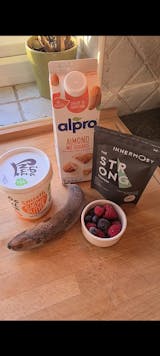Have you ever heard of the phrase “what doesn’t kill you makes you stronger”? Well, that most definitely applies here.
Whilst we’re all too aware of the impact of stresses, both in terms of acute stressors or those that are considered more chronic, every single one of us can discuss and reflect on times of stress in our lives.
Whilst there are genuine biological reasons for stress, of which we will go into in this article, did you know that there are more than just these immediately obvious types of stress that we are aware of, that we go through in life? Well, in fact, that we go through every day.
One of those is that of hormetic stress, or what is known as hormesis.
What is hormesis?
Hormesis is a state that describes the bodies natural reaction or response following exposure. What we mean by exposure, is of that to a product, with examples including supplementations, foods or drinks such as alcohol, or to a state, such as heat or pressure.
It’s not just a state that describes this exposure, though, but a description of the bodies response to a certain dose of the substance, condition or environment. If anything, it’s great proof that that so called ‘healthy stress’ that many health and wellness experts talk about. Make sense?
What is hormetic stress?
In order to determine what exactly hormetic stress is, it’s first important to know what stress is in general, we think. By nature, stress as a state refers to the disruption of the body from it’s normal state.
Taking into consideration of the above, hormetic stress describes the so-called ‘ideal’ exposure to the hormetic stressor.
Achieving hormetic stress can be a difficult and potentially difficult process, depending on the stressor. For example, if the stressor is a poison, under exposure to this particular stressor could leave the body entirely unchanged, but overexposure to such poison could be hugely detrimental, or even fatal.
Examples of common instances of hormetic stress
Whilst poison is a pretty extreme example (but one that was kind of necessary to adequately explain the 4-1-1), there are plenty of more common examples of substances or environmental conditions that lead the body to engage in what we describe as this hormetic stress.
Common hormetic stressors include:
- Exercise
- Alcohol
- Strength training
- Oxygen deprivation
- Submergence in water
- Intermittent fasting
- Resistance training
- Sun exposure
Why do we monitor hormetic stress levels and exposure?
The good news is that not all stress can have the same consequences as taking too much poison. The even better news is that healthy stress can have a lot of health and wellness benefits, and for that reason, many people actually voluntarily put themselves under this hormetic stress to improve their performance.
Logically, the body’s natural response to stress is to ramp up the defence and repair whatever is happening in an attempt to rapidly bring your body back to balance (otherwise known as homeostasis). So, with that in mind, common examples of this include engaging in strength training to increase muscle strength.
Think about it, when you up your weights or increase your sets, you’re stretching your muscle tissue in order to make them adapt, and ultimately become stronger. This is a great example of hormetic stress.
Studies into the effectiveness of hormetic stress
The science backs up this usage of healthy stress, too. That’s what we like to hear.
Nutrition Research Reviews published a variety of research into hormetic stress with extensive reviews of the relationship between nutrition, hormetic stress and health.
Examining the beneficial nature of hormesis, and the variety of research into the subject, the journal explains the impact of exposure to hormetic stress situations and how this repeated exposure (through regular exercise, for example), leads to an adaptation by the body that enables any risk of potential harm to be reduced, and thus, allowing performance to advance.
Furthermore, hormetic stress has been noted as an effective methodology in the treatment of some inflammation. One key example of this is the hormetic stress response experienced following specific heat exposure, which triggers heat shock. The investigation found that usage of hormetic stress and hormesis is effective in the inflammation treatment, supporting the idea that engagement in this method can have great impact on health and performance, too.
References
- Lindsay, D. G. (2005). Nutrition, hormetic stress and health. Nutrition research reviews, 18(2), 249-258. Click here.
- Mattson, M. P. (2008). Hormesis defined. Ageing research reviews, 7(1), 1-7. Click here.
- Gálvez, I., Torres-Piles, S., & Ortega-Rincón, E. (2018). Balneotherapy, immune system, and stress response: a hormetic strategy?. International journal of molecular sciences, 19(6), 1687. Click here.
























